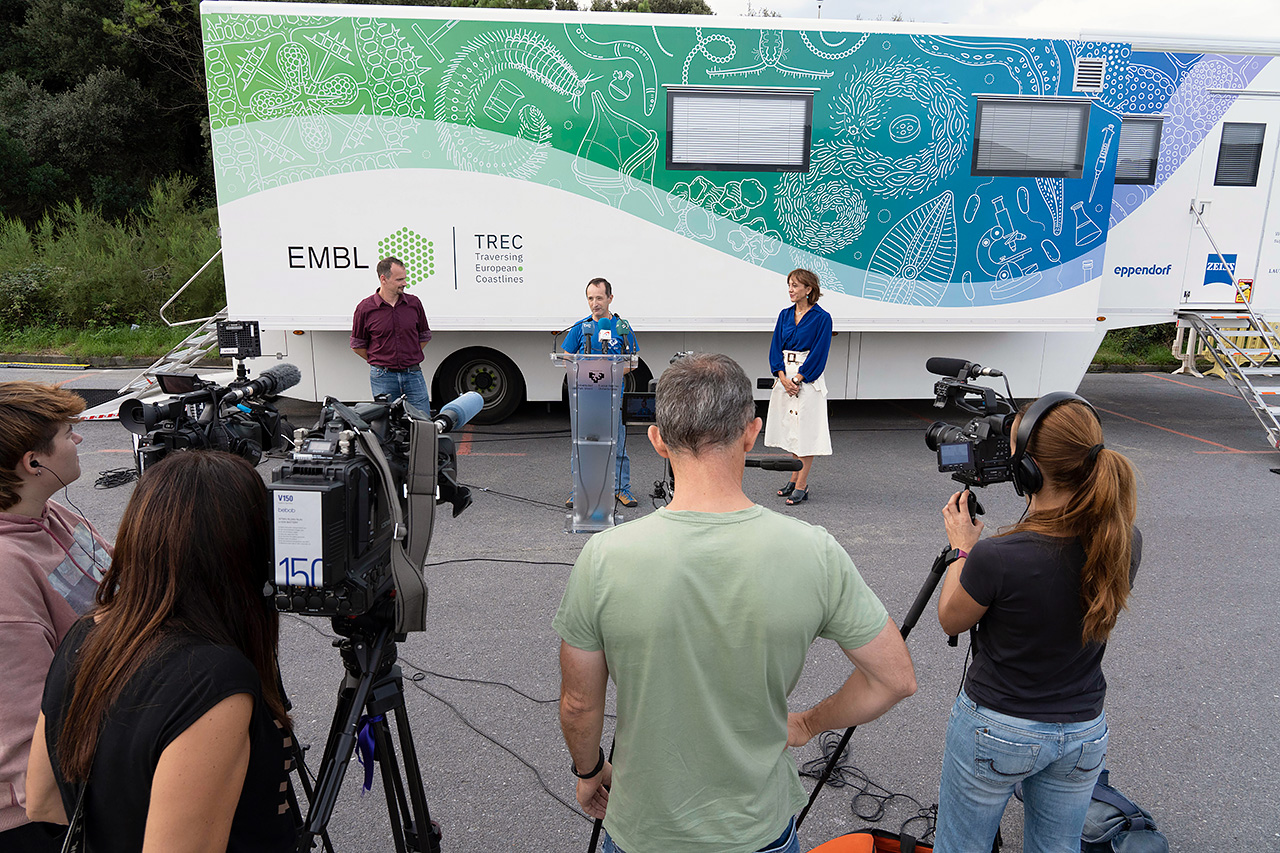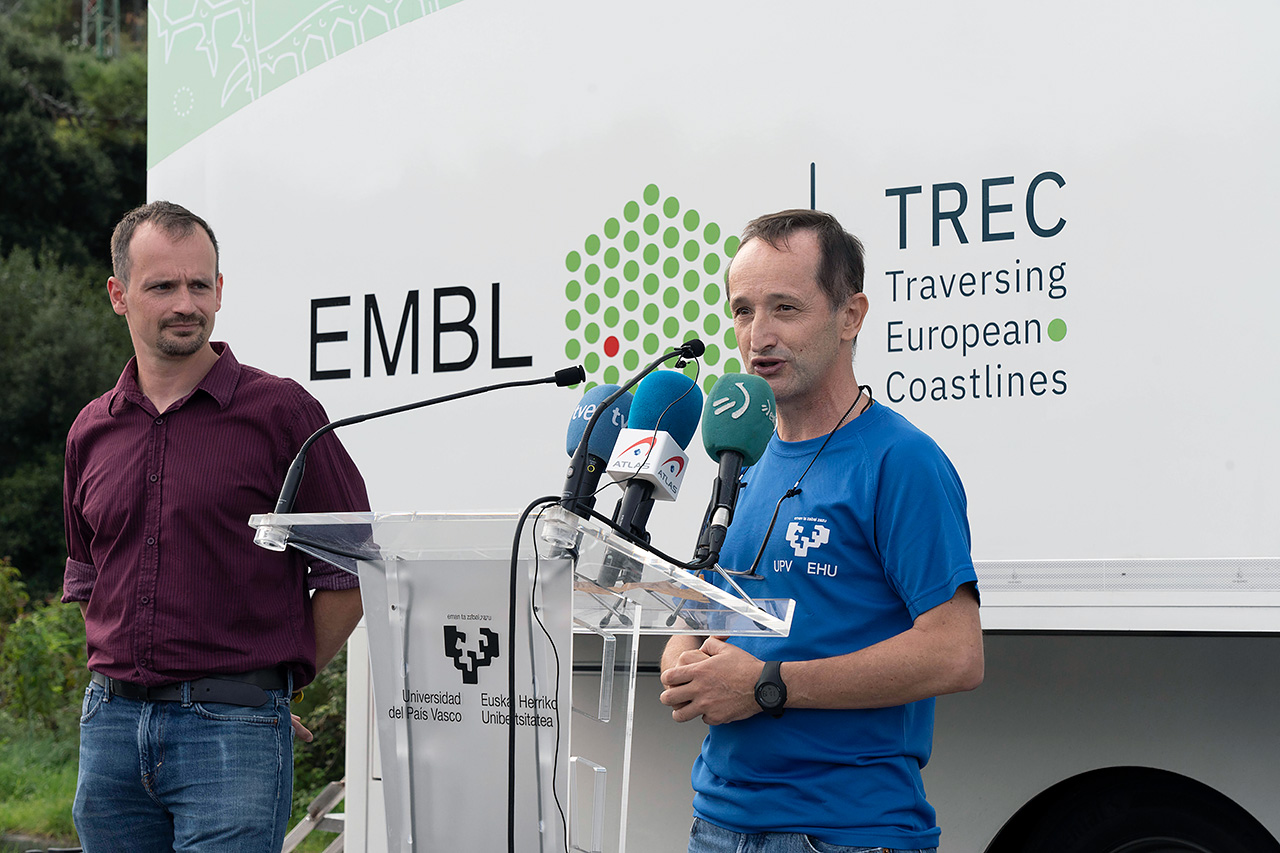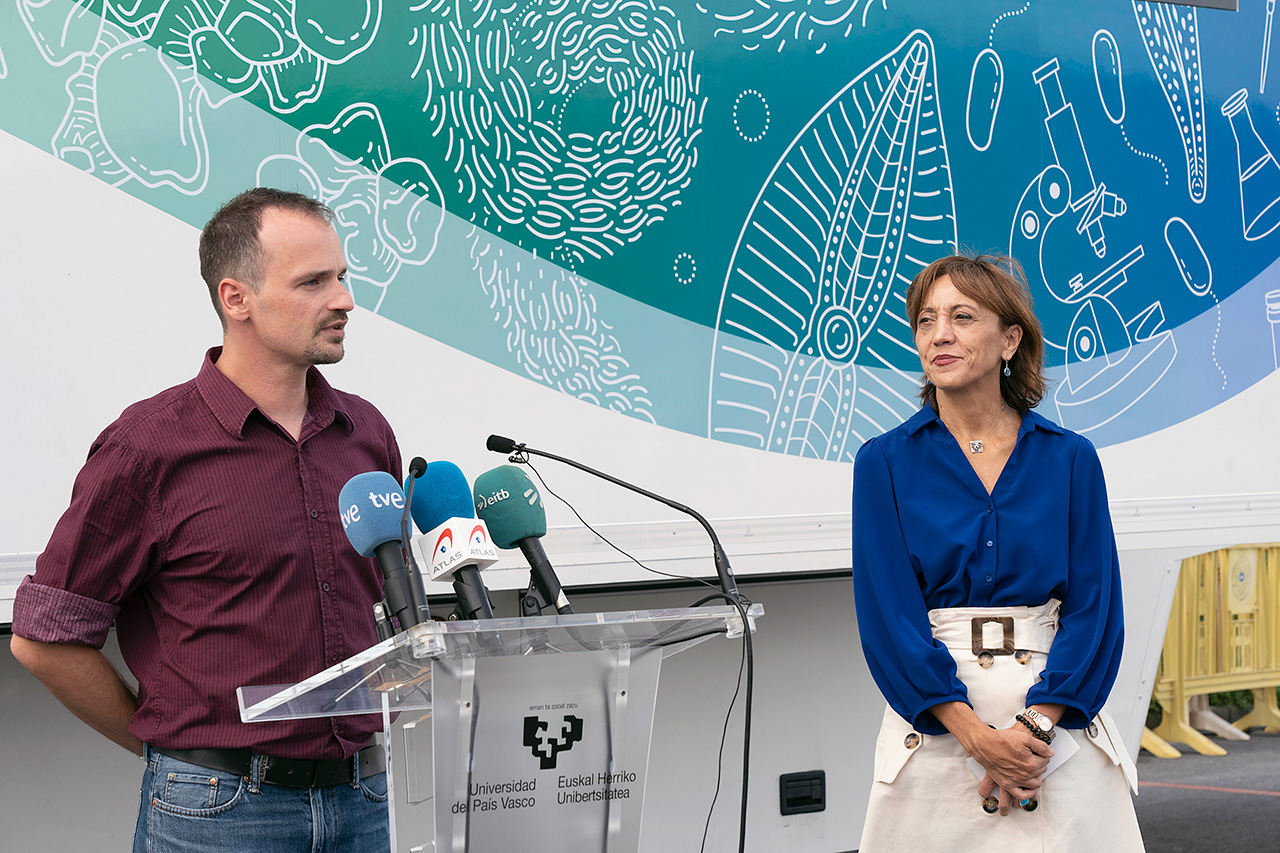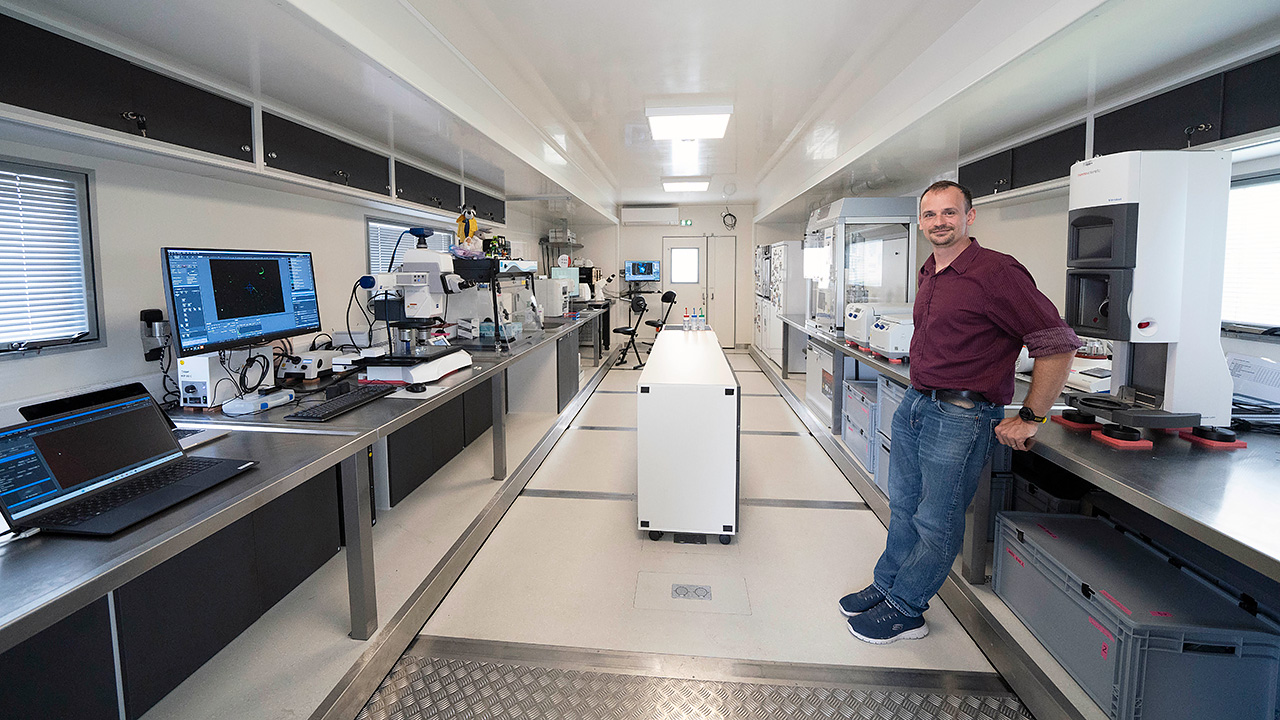The advanced mobile laboratory of the TREC expedition is now in the Basque Country
With the collaboration of the University of the Basque Country (UPV/EHU), this cutting-edge European scientific expedition will be studying the marine biodiversity of the Basque coast
- News
First publication date: 19/09/2023

In April the cutting-edge scientific expedition TREC (Traversing European Coastlines) began its tour of Europe's coasts in order to gain a detailed understanding of their biodiversity and ecosystems. It aims to gather information on how organisms interact with each other and with the environment starting with the molecular scale in the context of ecosystemic fluctuations along the coasts of the European continent. Of the 46 stops the expedition will be making across 22 countries, only eight have been chosen as sites for intensive sampling and scientific dissemination, and one of them is Plentzia-Bilbao.
The first phase of the TREC expedition is now here: until 11 October the advanced mobile laboratory of the European Molecular Biology Laboratory (EMBL) will be working opposite the Plentzia Marine Station (PiE-UPV/EHU). It is a sophisticated laboratory on wheels that brings state-of-the-art technology directly to the field, helping researchers carry out advanced sample preparation and microscopic analysis immediately after sample collection. It was first used during the TREC expedition's stay in Sweden, from where it has been transported to Gorliz-Plentzia. Among its state-of-the-art advanced microscopy equipment, it has methodologies that have recently won two Nobel prizes.
The EMBL is in fact the institution that is coordinating the TREC expedition together with the Tara Oceans Foundation and the European EMBRC-ERIC research infrastructure to which the Plentzia Marine Station belongs. This station is the local research centre that is collaborating in the expedition.
TREC combines high-level in situ research with ocean exploration. The advanced mobile laboratory will be joined in early October by the scientific research schooner Tara, which will explore ocean habitats relatively close to our coast by collecting water samples. In addition, another land-based team, also from the EMBL, will collect environmental samples (water, sediment, aerosols) and selected model organisms at the land-sea boundary. “So we’re talking about three scientific superstructures, the advanced mobile laboratory, the coastal sampling services and the schooner Tara, and all of them are visiting the marine research infrastructure that is the PiE-UPV/EHU,” explained PiE-UPV/EHU researcher Ibon Cancio.
About the TREC expedition
The TREC expedition set sail in April 2023 from Roscoff (France) and will complete its pan-European exploratory voyage in the Mediterranean in 2024, devoting 2023 to the Atlantic and the Baltic sea. It will visit a total of 22 countries on its voyage, with 46 stops. All of these stops incorporate the shore and open-sea sampling components, but only eight stops include the stay of the advanced mobile laboratory accompanied by intensive sampling for visiting researchers as well as science outreach activities. “Through the PiE-UPV/EHU, Plentzia-Bilbao was selected as one of these eight ‘super-sites’. The PiE-UPV/EHU has been working for years on the molecular and morphological observation of marine biodiversity, also in collaboration with other European institutions via the EMBRC, and has recently incorporated the ‘One-Health’ approach to the exploration of Plentzia Bay. It is that experience of years of observation, and excellent science when analysing coastal ecosystems that has attracted the TREC expedition to our shores,” said Ibon Cancio.
The analysis using gene sequencing and advanced microscopy methodologies that TREC will carry out on the samples obtained will provide unprecedented information by associating data at the molecular, cellular and ecosystem levels. “Special emphasis will be placed on the detection of bioactive compounds, as well as on the physico-chemical characterisation of the sampled habitats. This integrated description of life will make it possible to obtain the first census of European coastal ecosystems and to develop early diagnostic tools and solutions to adapt ourselves to the changes that the future may bring,” he announced.
In addition to the scientific and exploratory side, throughout its tour the TREC expedition is keen to get the general public involved in environmental problems linked to planetary health by demonstrating the power of biology to address the global challenges facing our societies. The public participation activities will include game-based workshops, a stand, scientific talks and guided tours of the mobile laboratory, the Tara vessel while it is moored off Bilbao (11-18 October) after the samplings have been completed, as well as of the PiE-UPV/EHU.
The highlight of this visit/expedition to the Basque Country will be on 11 October, when the three scientific components of the expedition, the mobile laboratory, the sampling teams and the vessel Tara, will coincide in Bilbao. With the docking of the Tara opposite the Itsasmuseum in Bilbao, a public reception will be held to bid farewell to the terrestrial component after its month-long stay and science among us.










